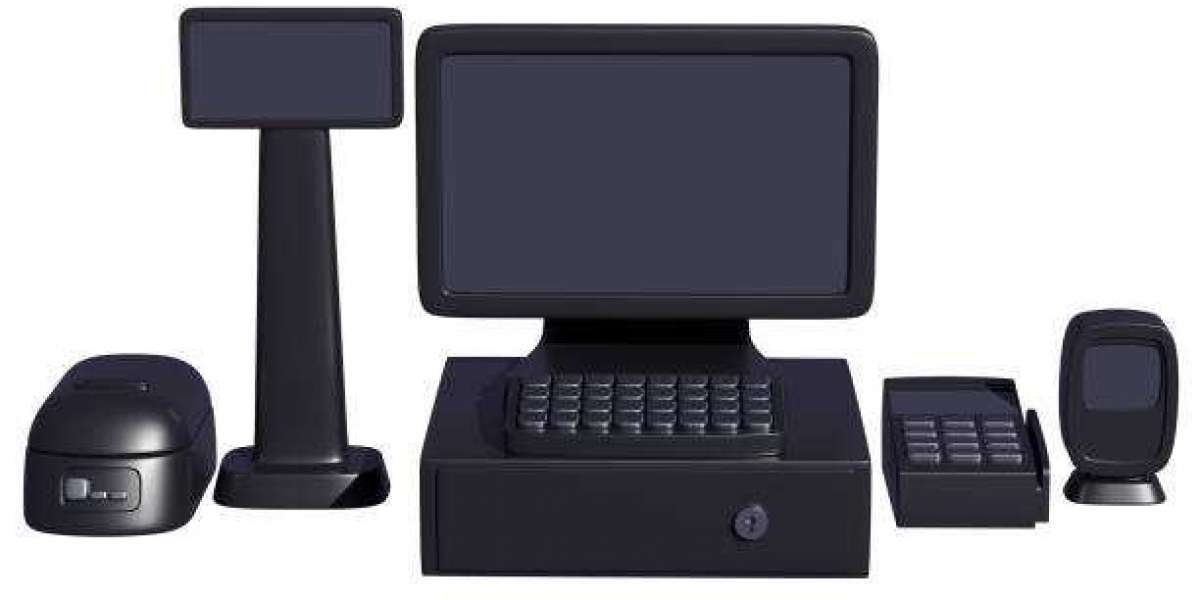In the dynamic world of retail, Point of Sale (POS) systems play a pivotal role in shaping customer experiences, managing inventory, and driving sales efficiency. From traditional cash registers to sophisticated digital platforms, the evolution of POS systems has revolutionized the way businesses operate. In this article, we delve into the realm of Retail POS Systems, exploring their evolution, features, and the benefits they offer to modern retailers.
Evolution of Retail POS Systems
Gone are the days of manual cash registers and handwritten receipts. The evolution of technology has transformed retail POS systems into powerful tools that integrate seamlessly with various aspects of business operations. From standalone terminals to cloud-based solutions, the evolution of POS systems has been marked by several key milestones:
Traditional Cash Registers: Historically, cash registers were the cornerstone of retail transactions. These mechanical devices recorded sales transactions and provided basic functionality for cash management.
Electronic Cash Registers (ECRs): With the advent of electronic technology, ECRs replaced traditional cash registers, offering improved efficiency and accuracy in transaction processing. ECRs introduced features such as barcode scanning and integrated payment processing.
Computer-based POS Systems: The proliferation of computers in the 1980s paved the way for computer-based POS systems. These systems utilized dedicated hardware and software to manage sales transactions, inventory, and customer data.
Cloud-based POS Solutions: In recent years, cloud-based POS solutions have gained prominence due to their scalability, accessibility, and real-time data insights. These systems leverage the power of the internet to provide retailers with centralized management, remote access, and enhanced security features.
Key Features of Retail POS Systems
Modern Retail POS Systems offer a wide array of features designed to streamline operations and enhance the customer experience. Some key features include:
Inventory Management: Retail POS systems enable businesses to track inventory levels in real-time, automate reordering processes, and manage stock across multiple locations.
Sales Reporting and Analytics: Advanced reporting capabilities allow retailers to gain insights into sales performance, customer trends, and product profitability. These analytics empower informed decision-making and strategic planning.
Omni-channel Integration: With the rise of omni-channel retailing, POS systems facilitate seamless integration across various sales channels, including brick-and-mortar stores, e-commerce platforms, and mobile applications.
Customer Relationship Management (CRM): POS systems enable retailers to capture customer data, track purchase history, and implement loyalty programs. This information can be leveraged to personalize marketing efforts and foster customer loyalty.
Payment Processing: Integrated payment processing capabilities streamline transactions, support multiple payment methods, and ensure secure payment processing compliance.
Benefits of Retail POS Systems
Implementing a Retail POS System offers numerous benefits for businesses of all sizes:
Improved Efficiency: POS systems automate repetitive tasks, such as inventory management and transaction processing, freeing up time for staff to focus on customer service and strategic initiatives.
Enhanced Accuracy: By eliminating manual data entry and human errors, POS systems ensure accurate recording of sales transactions, inventory levels, and financial data.
Streamlined Operations: Centralized management and real-time data insights enable retailers to streamline operations, optimize inventory levels, and respond quickly to changing market dynamics.
Better Customer Experience: With faster checkout processes, personalized service, and integrated loyalty programs, POS systems enhance the overall customer experience, driving customer satisfaction and loyalty.
Increased Sales: By leveraging data analytics and omni-channel integration, POS systems help retailers identify opportunities for upselling, cross-selling, and targeted marketing, ultimately driving sales growth.
Conclusion
In conclusion, Retail POS Systems have evolved from basic cash registers to sophisticated digital platforms that empower retailers to streamline operations, enhance the customer experience, and drive sales growth. By embracing the latest technologies and leveraging advanced features, businesses can stay ahead in today's competitive retail landscape, ensuring long-term success and sustainability.














